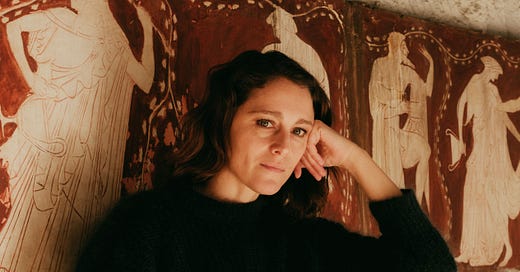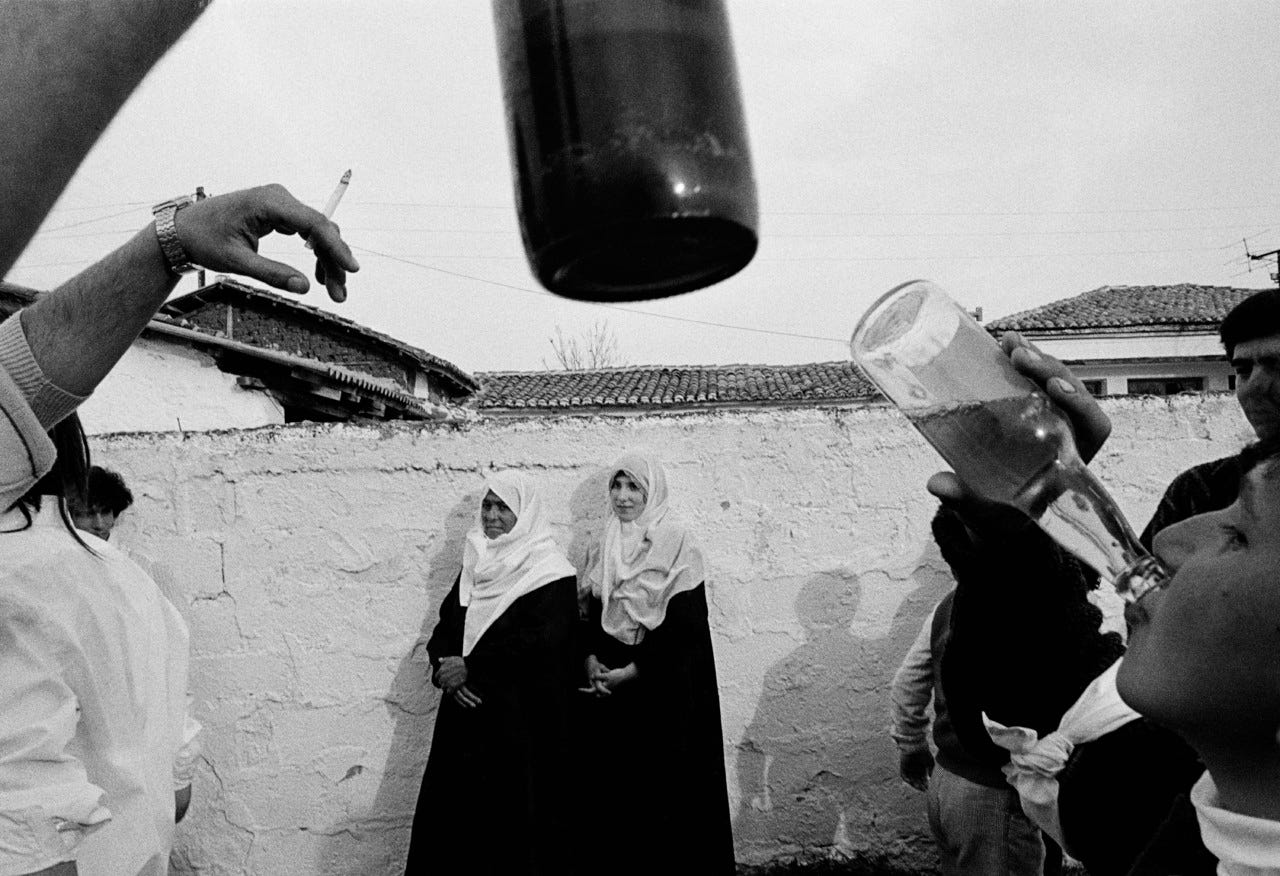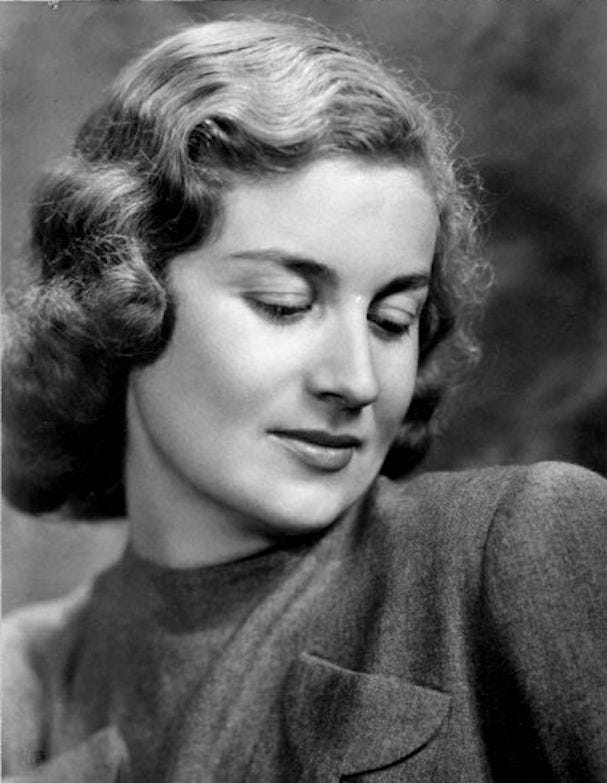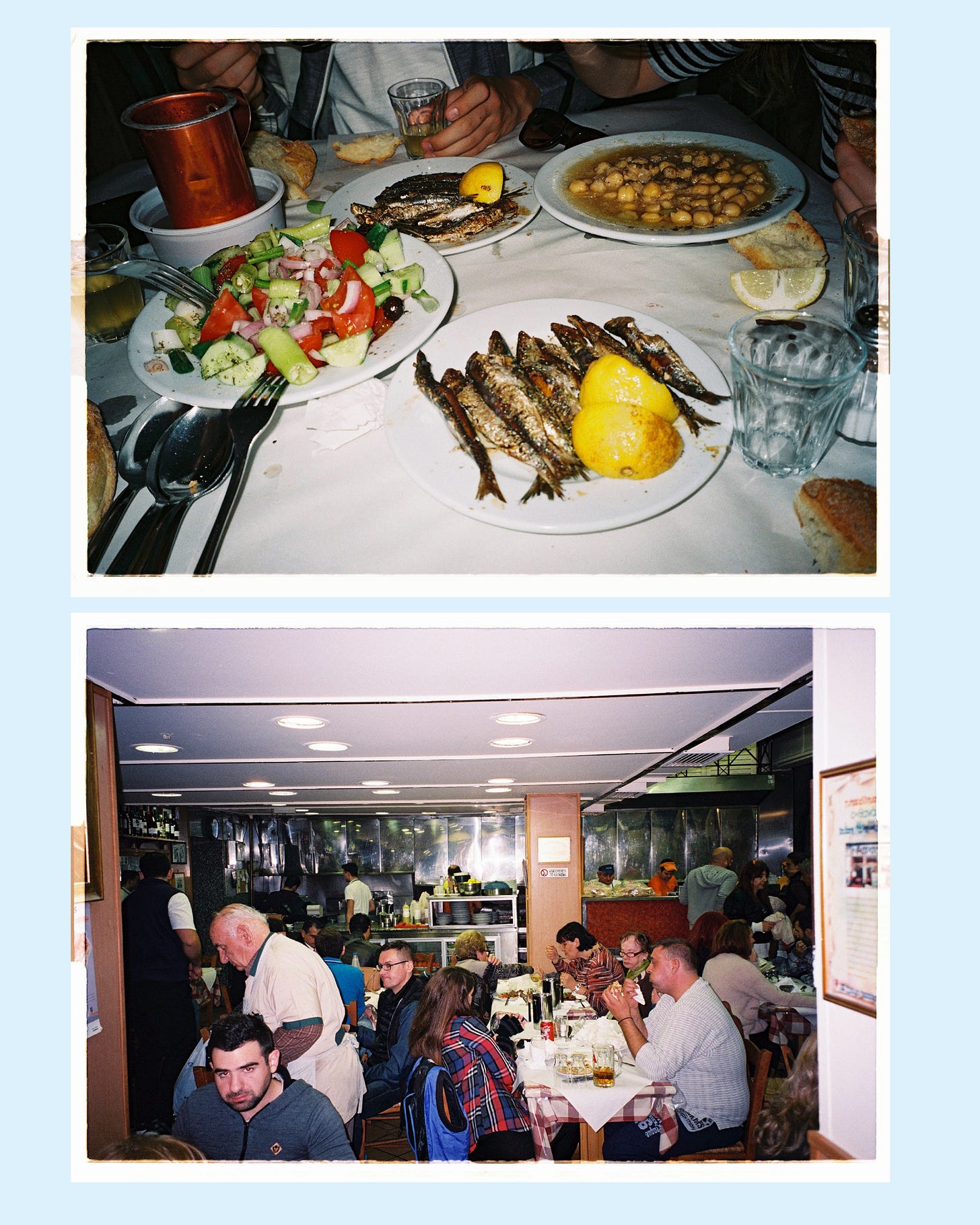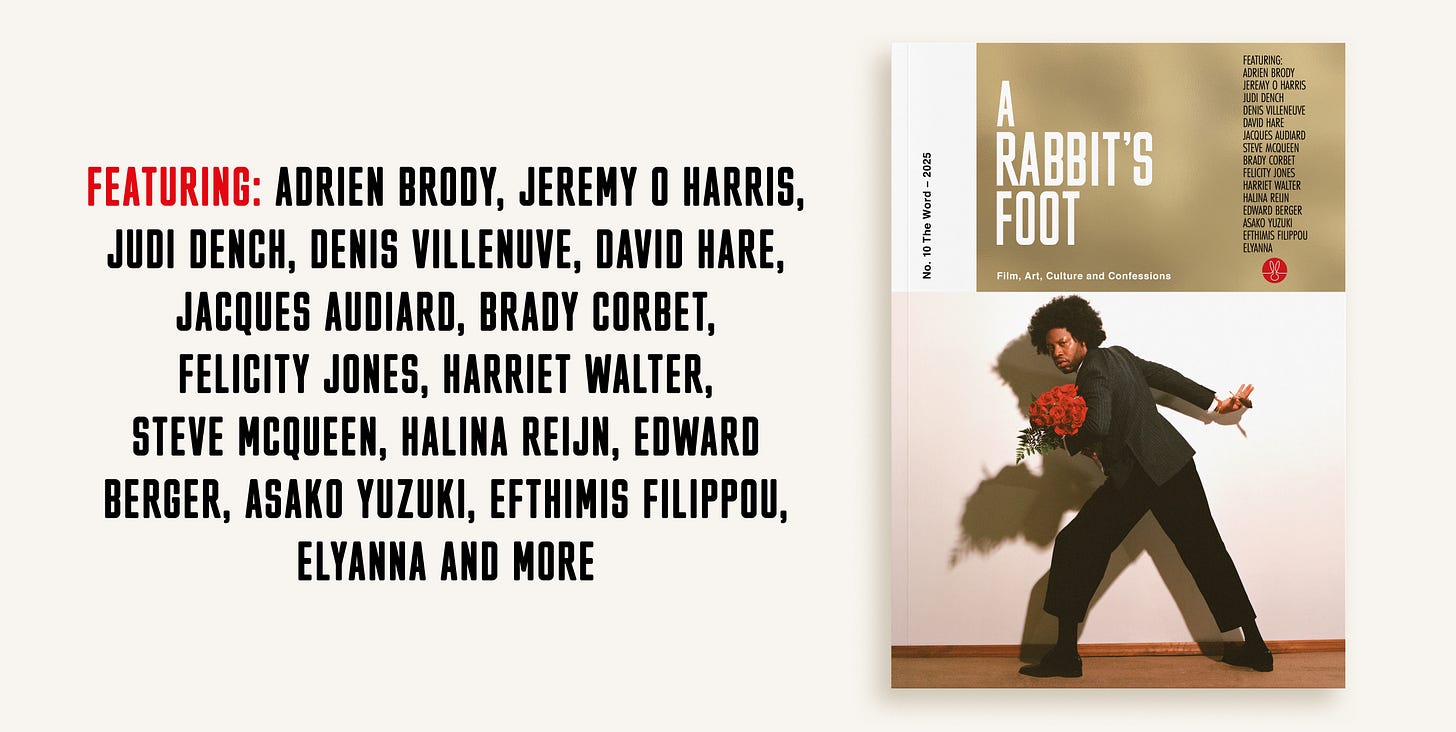Ariane Labed, Maria Plyta, Efthimis Filippou... and a film lover's guide to Greece
Celebrating Easter with a week of Greek stories
The Greeks take Easter very seriously, and, with a literal handful of Greek writers on our team, we decided to celebrate with a week of Hellenic stories. To get things warmed up we have Luke Georgiades’ ‘Film lover’s guide to Greece’ which provides an introduction to Greek cinema beyond the so-called ‘Weird Wave’. Then, we have interviews with two figures associated with the Weird Wave. First, Ariane Labed, star of Attenberg, The Lobster, The Brutalist and The Souvenir, who has also been establishing herself as a director, first with Olla in 2019 and now with September Says. Kitty Grady met her in Athens. Meanwhile, Deputy Editor Chris Cotonou speaks to Efthimis Filippou, favoured screenwriter of Yorgos Lanthimos and one of Greece’s leading playwrights. Going back in time, researcher Marina Zigneli shares her research into Maria Plyta, the first female director in Greece. From Issue 7, we also revisit ‘The New Athenians’, Chris Cotonou’s literary dispatch from the contemporary Greek captial in which he paints a picture of a city filled with delightful oddities and a new wave of creatives who are calling it home.
See all the stories below, and discover more on our Instagram.
Happy Easter!
A Rabbit’s Foot






A film lover’s guide to Greece—beyond the ‘weird wave’
In 2011, not too long after the release of Yorgos Lanthimos’ Dogtooth (2009) and Athina Rachel Tsangiri’s Attenberg (2011), Guardian film critic Steve Rose coined the term “Greek Weird Wave.” Though the label quickly took on a life of its own, and, for a time, perhaps accurately described the type of films that were coming out of Greece at the time—surreal, absurdist storytelling laced with dark humour and thorny critiques of the country post-2009 financial crisis (to put it broadly)—the term quickly became the go-to way of reducing Greek cinema into a single neat, digestible package. On the contrary, what Greek cinema has to offer and indeed has offered for over a century of national filmmaking (Konstadinos Bahatoris’ 1911 silent film Golfo is generally regarded as being the first feature length Greek film) reaches far, far beyond.
Ariane’s Thread
Ariane Labed has always felt like an outsider. Born in Athens to French parents, the actor and director spent her childhood between Greece, Germany and France before arriving back in Athens, aged 24. There she met Athina Rachel Tsingari, who cast her as the lead in Attenberg, a part she took, despite not really knowing how to speak Greek. Alienation and the failures of language has become a theme in her directorial work, first with Olla, about a Russian mail-order bride who can’t communicate with her French husband, and now with her debut feature September Says (now streaming on MUBI). An adaptation of Daisy Johnson’s gothic novel Sisters, it explores the growing pains of adolescence and like Olla and Attenberg the strange, imaginative and corporeal ways we can communicate with the world instead.
The Gospel According to Efthimis Filipou
Efthimis Filippou was born in 1977, a period after the military dictatorship, and on the eve of Greece’s membership to what is today known as the European Union. As the country’s most accomplished modern screenwriter and playwright, he came of age in periods of hope, turmoil, and political chaos. Modern Greece was a fertile setting to inspire the surrealism that haunts much of Filippou’s writing, and after a career as an advertising copywriter, he published a series of books, plays, and screenplays that contributed to the popularity of what is known as the “Greek Weird Wave”—most famously with his collaborator, the filmmaker Yorgos Lanthimos, who he co-wrote with on Dogtooth (2009), The Lobster (2015), and most recently Kinds of Kindness (2024). Many consider Filippou to be just as important to Lanthimos’ cinematic vision.
In search of Maria Plyta—the first female Greek director
Born in Thessaloniki in 1915, Maria Plyta was a director, producer, writer and editor who, despite achieving great success in her lifetime (she made 17 films, a staggering achievement in an era when women were barely allowed behind the camera), then disappeared, nowhere to be found in the canon of 1950s and 60s Golden Age Greek cinema. For A Rabbit’s Foot academic and researcher Marina Zigneli shares her research into these archival gaps, painting a vivid portrait of a prolific, revolutionary and self-taught filmmaker who smuggled in complex social ideas and feminist politics into commercial-scale movies.
The New Athenians
“Mr Spyrou’s cat was the first new friend I made in Athens. Outside the apartment on Fokinou Street, which is a dusty lane scattered with unremarkable antique shops (sandwiched between the tireless EO1 highway that divides downtown and the quiet Pangrati quarter), Evie would see me off each morning. Old Mr Spyrou had no time for me, but Evie did; and after a couple of days I allowed her into the building, fed her leftover filo pastries from breakfast, and we grew attached to each other; because in Athens, they say, it is the cats who see and know everything, and so it pays to be kind to them.”

